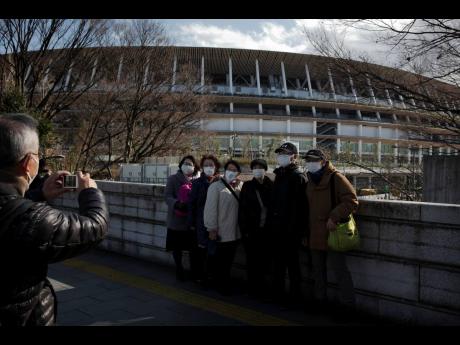Hubert Lawrence | Coronavirus threatening Olympic dreams
At 31 years old, Chinese maestro Ma Long may already be the best table tennis player of all time. World Champion back-to-back-to-back in 2015, 2017 and 2019, and Olympic Games champion in Rio di Janeiro four years ago, Ma enters this season with one mission: to secure sporting immortality, he must win the men’s singles gold in Tokyo, when the Land of the Rising Sun hosts the Games this summer.
He was brilliant in Rio, and gold in Tokyo would pull him past Swedish hero Jan-Ove Waldner, the 1992 winner and 2000 runner-up. In addition, Ma is racing against time. In eras past, the Chinese authorities might have retired him already, and, in any case, there are excellent young players at home and abroad snapping at his heels.
The Chinese team, including Ma, has been moved to Qatar and out of the reach of the novel coronavirus. As a human being, he probably hopes the infections will stop and that a solution will be found. As a sportsman, he knows it could end his career one win short of his ultimate goal.
He isn’t alone.
Theoretically, the Games could be postponed, but picking a new spot won’t be easy. International sport schedules are set years in advance. Track and field has its World Championships next year in Eugene, Oregon, and work is well under way in Birmingham, England for the 2022 Commonwealth Games. Still, given that Tokyo has shelled out billions to get ready for the Games, the search for a solution must be on the agenda.
Fans might just love a 2022 sporting calendar that includes the Winter Olympics in February, the Commonwealth Games and the Olympics in the middle, and World Cup football in November and December. I know I would.
However, that might not help Ma. Even if the International Olympic Committee and its sporting affiliates could successfully put the Games on the 2022 schedule, Ma and veteran superstars have no guarantee of top form two years from now. Age, injury, and new challengers cloud the future for those who have toiled for Tokyo for years.
EFFECTS OF WORLD WAR
World war forced the cancellation of the 1940 and 1944 Olympics and cut across the lives and sporting careers of many. Rudolph Harbig, the German who held world records for both the 400 and 800m races, was killed in World War II. Don Finlay, a world-class 110m hurdler, served his country in that war and held on for the 1948 Games. Then 39, he gave the Athletes Oath at the opening ceremony but fell in his first-round race and lost his last chance for the gold medal.
If the coronavirus was a political problem, then Jamaican athletes wouldn’t have to worry. Our Government sanctioned the team’s participation in 1976 when we might have joined an African boycott of the Games. That choice gave Don Quarrie the opportunity to win the 200m gold. Jamaica also ignored boycotts in 1980 and 1984.
This is different. If the virus isn’t brought under control in good time, the world health authorities will have no choice but to pull the shutters down. The danger will be too great.
There is much effort being made to put the brakes on the virus. Hopefully, it will be brought under control soon. In the meantime, veterans like Ma must train and be ready for Tokyo. They almost certainly share those hopes not just because they are sportsmen with their careers hanging in the balance, but because they are human.
Hubert Lawrence has scrutinised local and international table tennis since 1975.

